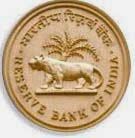8th August 2014 - Daily Current Affairs updates
National Affairs
International Affairs
Business & Economy
Sports
National Affairs
- Delhi government has launched a week long city-wide cleanliness and sanitation movement along with a plantation drive to mark the 68th Independence Day of India
- A Delhi court on Friday framed charges against five persons, including three former naval officers and an ex-IAF Wing Commander, in the 2006 Naval War Room leak case.
- Union Minister of State for Environment, Forest and Climate Change (Independent Charge) Prakash Javadekar addressed the 18th BASIC (Brazil, South Africa, India and China) ministerial meeting on climate change held at New Delhi today.
- 13 years after dacoit-turned-politician Phoolan Devi was shot dead in Delhi, a city court has convicted main accused Sher Singh Rana. 11 other accused have been let off.
- Pakistan today handed over to India a BSF jawan Satyasheel Yadav, who was captured by Pakitan Rangers after he was swept away into their territory by strong currents of Chenab river.
- Delhi Metro will run over 600 extra train trips in the span of next two days to cope with the extra rush of commuters expected on the festive occasion of Raksha Bandhan.
International Affairs
- The World Health Organization today declared the killer Ebola epidemic ravaging parts of west Africa an "international health emergency" and appealed for global aid to help afflicted countries.
- External Affairs Minister Sushma Swaraj arrived in Mayanmar on a four-day visit to attend three key multilateral forums including India-ASEAN Foreign Ministers meeting, East Asia Summit, besides bilateral talks with her counterparts from China, Australia and other nations.
- India and US appoint nodal officers to co-develop and co-produce defence hardware: Defense Ministry.
Business & Economy
- In one of its biggest penalties for non-disclosure of a key earnings ratio, SEBI today imposed a penalty of Rs 13 crore on corporate behemoth Reliance Industries Ltd (RIL) for violation of the Listing Agreement.
Sports
- Featuring eight teams, the first-of-its-kind World Kabaddi League kickstarting in London on Saturday as Bollywood stars Akshay Kumar and Sonakshi Sinha will add a dash of glamour to the ambitious event. The tournament will be played for four months in USA, England, Canada, UAE and India.
- The selection trials to pick Indian boxers for the upcoming Asian Games in Incheon, South Korea, has been postponed due to request from the medal winners in the recently-concluded Glasgow Commonwealth Games.


















0 comments: